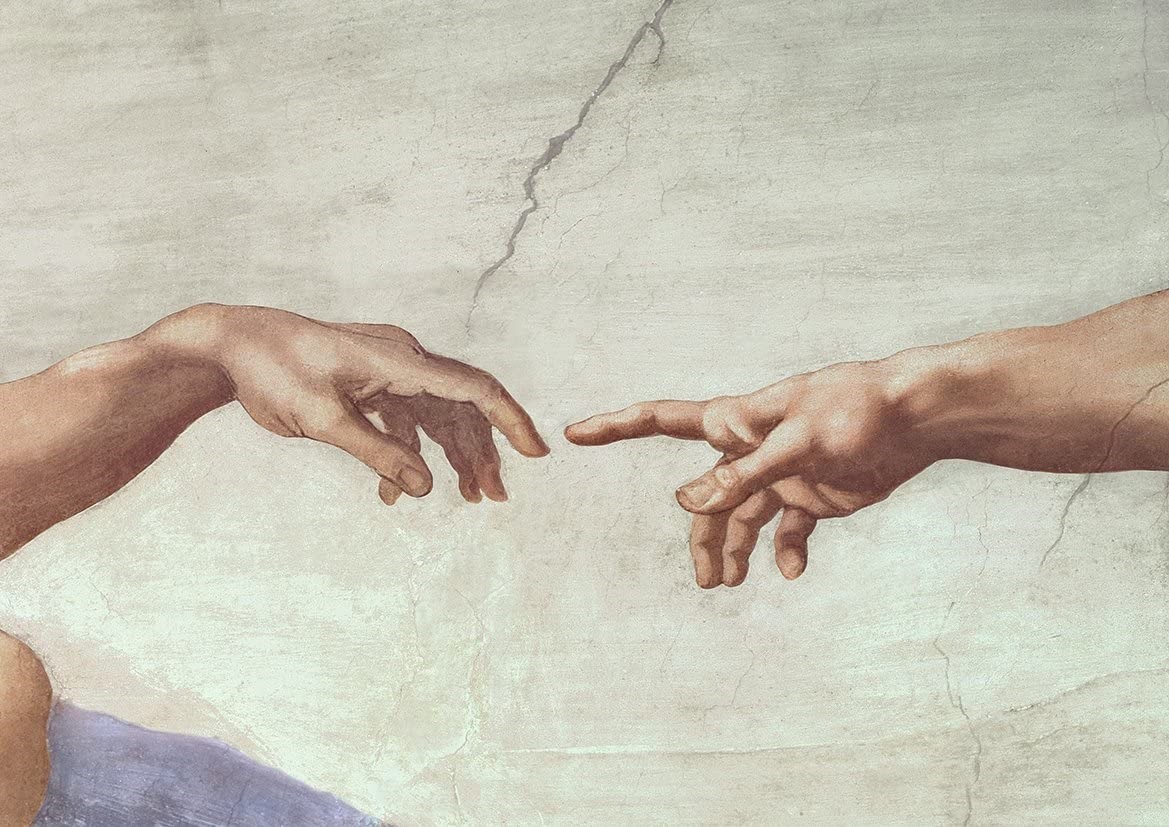Thank you, Ohkaydeh, for asking such a timeless question!
The answer to this question depends on your conception of God, assuming that God does indeed exist and created the universe. The benefit of being a philosopher is that we can be creative and not worry too much about theology or committing various heresies. So, I am going to answer this question with the aid of Plato’s conception of God.
According to Plato, God is called the demiurge (δημιουργός), which in Greek literally means ‘craftsman’. God is the most perfect artisan; and just like any piece of artwork, creation of the universe started with an idea in the mind of the artist. Plato’s demiurge is more than just an object of worship; the demiurge can also be seen as the source of the highest form of wisdom, love, beauty, and creativity. The creation of the universe is therefore a necessary product of God’s own creative nature. Just as an artist puts their soul into their artwork, the demiurge’s mind permeates the whole universe as ‘the world soul’. Corresponding to this divine mind is what Plato considered to be the most elevated part of the human soul, namely, the rational part. (Note that Plato does not discriminate in his conception of the soul: all human souls have a rational part; women, for example, can reach the same rational state as men, something few philosophers since Plato have been willing to admit).
We must be careful to understand Plato’s term ‘rational’ in the right way. Since the demiurge is a perfectly benevolent and wise creator, the universe is created with both wisdom and love. Reason is not, therefore, devoid of love; nor is it a mere calculative tool or just a cold ability to accumulate information, as we commonly think today. Furthermore, anyone familiar with the concept of Platonic love knows that his definition of love has nothing to do with physical attraction, but rather benevolence and wisdom. Plato’s conceptions of love and wisdom are therefore inclusive: the highest form of wisdom is also the highest form of love.
But why did God create human beings in particular? And, if God is so perfect, why aren’t humans perfectly wise, benevolent, and good, and all that, as well? If God is perfect, why is there suffering and imperfections in the world? Would it even be possible for something completely perfect to create imperfections? This is famously called ‘the problem of evil’.
I suggest that we consider an alternative scenario. What would it be like if God had created humans as fault-free, ready-made, and completely perfect? Wouldn’t this make humans nothing more than pre-programmed, divine robots? As such, they wouldn’t be human at all, assuming that only individuals are capable of knowledge, understanding, wisdom, happiness, and of loving other individuals. God did not pre-programme human beings as perfect, but instead gave them the capacity to fulfil themselves as individuals. God did not create imperfection; God created individuals.
Let’s return to the analogy of creation as an idea in the artist’s mind. If the universe sprung from an idea, then what we experience as the physical world is not necessarily the finished product; the world could well be a work-in-progress. And if we want to avoid the ‘divine robot’ absurdity, then we may interpret the idea of a human as simply the idea of a creature capable of happiness, reason, and love.
In short, the reason that God (Plato’s God, at least) created humans could be that they are a necessary expression of God’s benevolent and wise creative power. Perhaps in order to have something, or rather someone, to love; for only as individuals are humans capable of loving God, and each other, in return. As Alfonso the Wise allegedly said, “if God had asked me, I would have suggested something simpler…”
What do you think? Did God create humans? If so, why? Let us know in the comments.
And, as always, if you have a question for the Armchair Philosophers, don’t hesitate to get in touch. You could send us a message or fill in this form.
Image: The hands from Michelangelo’s The Creation of Adam (c. 1512)
I am an Associate Lecturer in Philosophy at the University of York. I did a BA in Philosophy and Divinity at the University of Aberdeen. During my MA, also at Aberdeen, I studied the history and foundation of quantum mechanics, and metaphysics and science in the 17th century. I completed my PhD at the University of York in 2018, with a focus on the epistemology, theology, and political philosophy of John Locke. I am also interested in ethics, the history and development of natural law theory, and Neo-Platonism in the 17th century. More recently, in the spirit of Neo-Platonism, I have started working on Damaris Masham and Anne Conway. This has led to a growing interest in other women in the history of philosophy that have often been ignored…

